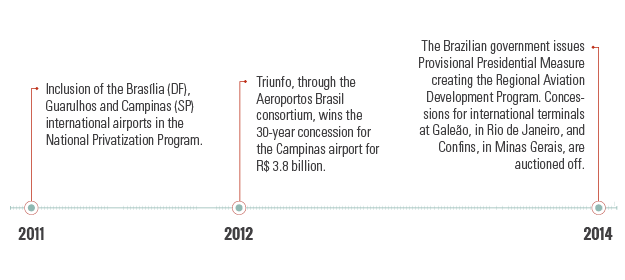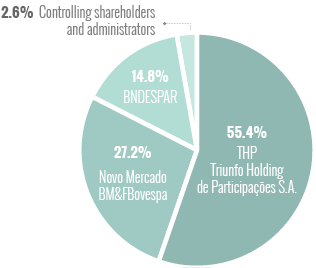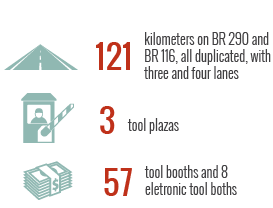Triunfo
Corporate profile
Triunfo Participações e Investimentos is an infrastructure concession company operating in the toll roads, ports, airports and energy segments – all of which are essential to the development of Brazil. Headquartered in São Paulo (SP), Triunfo is a publicly held company listed on the BM&FBovespa - Securities, Commodities and Futures Exchange under the ticker TPIS3. The Company is listed on BM&FBovespa’s Novo Mercado segment, which consists of companies that adopt the highest governance standards. G4-3 G4-5 G4-7
Share capital(on 12/31/2014)
|
Triunfo ended 2014 with 4,369 employees in its operational units located in eight Brazilian federative units (see map on "Triunfo companies"). G4-6
The companies in which Triunfo holds interest share its values and objectives, apply its guidelines in running their businesses and, most importantly, in their relations with society. Focused on their core objective of satisfying client and user expectations, these companies contribute to the sustainable development of Brazil and make Triunfo one of the most valued companies in the infrastructure segment. |
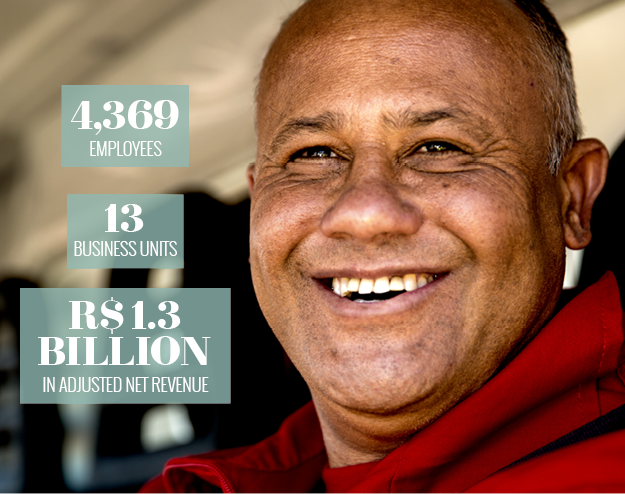
- +CHANGES IN 2014
- • Through its subsidiary Tijoá, Triunfo started operating the Três Irmãos Hydroelectric Plant. Located in Andradina (SP), it is the largest plant operating on the Tietê River basin
– learn more on "Triunfo companies".
• Triunfo began the process of acquiring Transbrasiliana, which holds the concession for a 321.6-kilometer stretch of the BR-153 highway in São Paulo (SP).
• Triunfo and América Latina Logística (ALL) discontinued a project to create an integrated iron ore producer, Vetria Mineração, in Corumbá (MS).

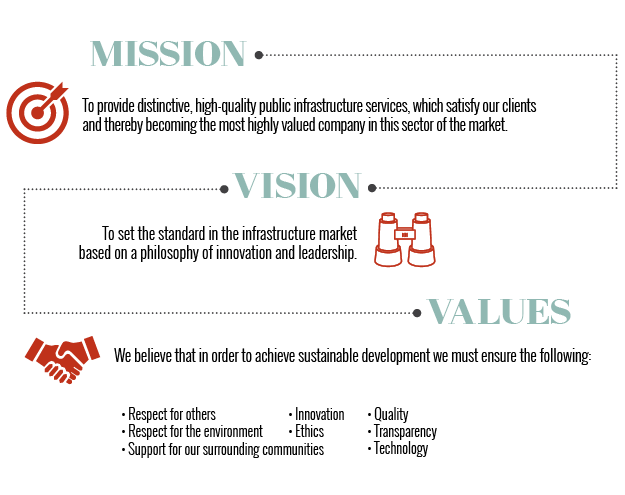
HISTORY
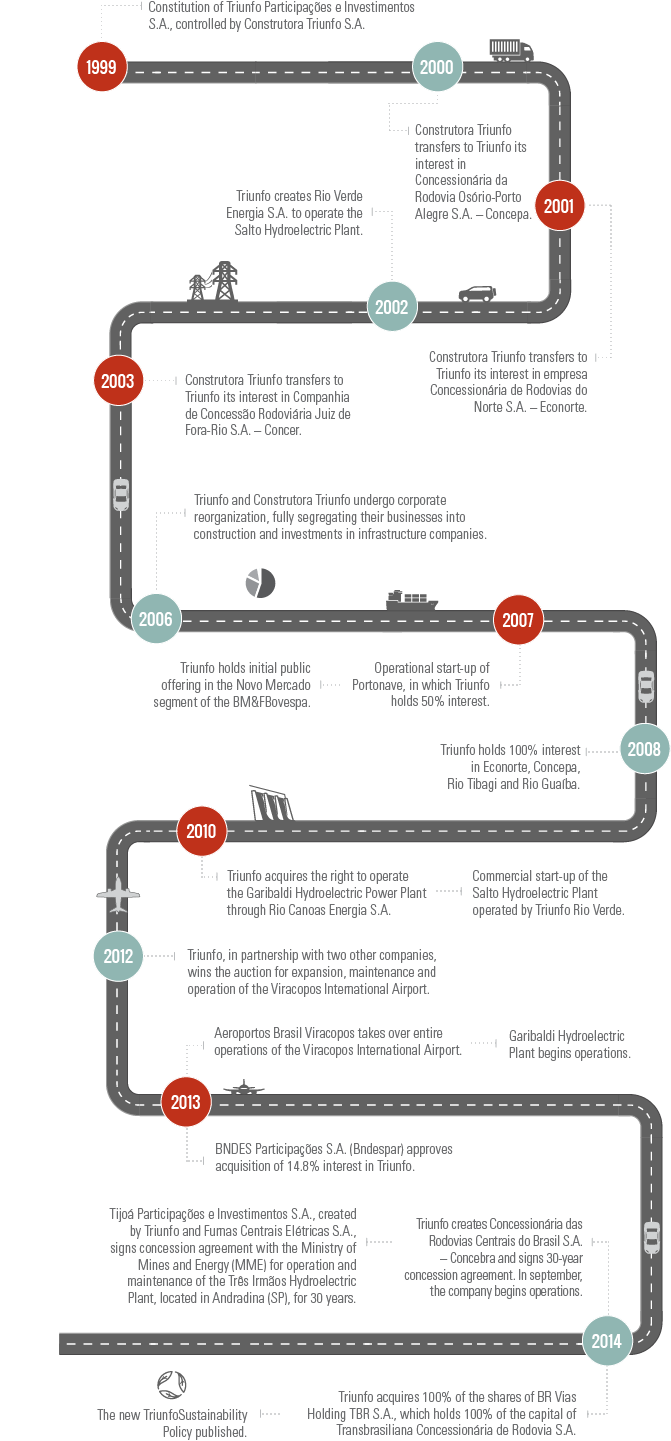
TRIUNFO COMPANIES
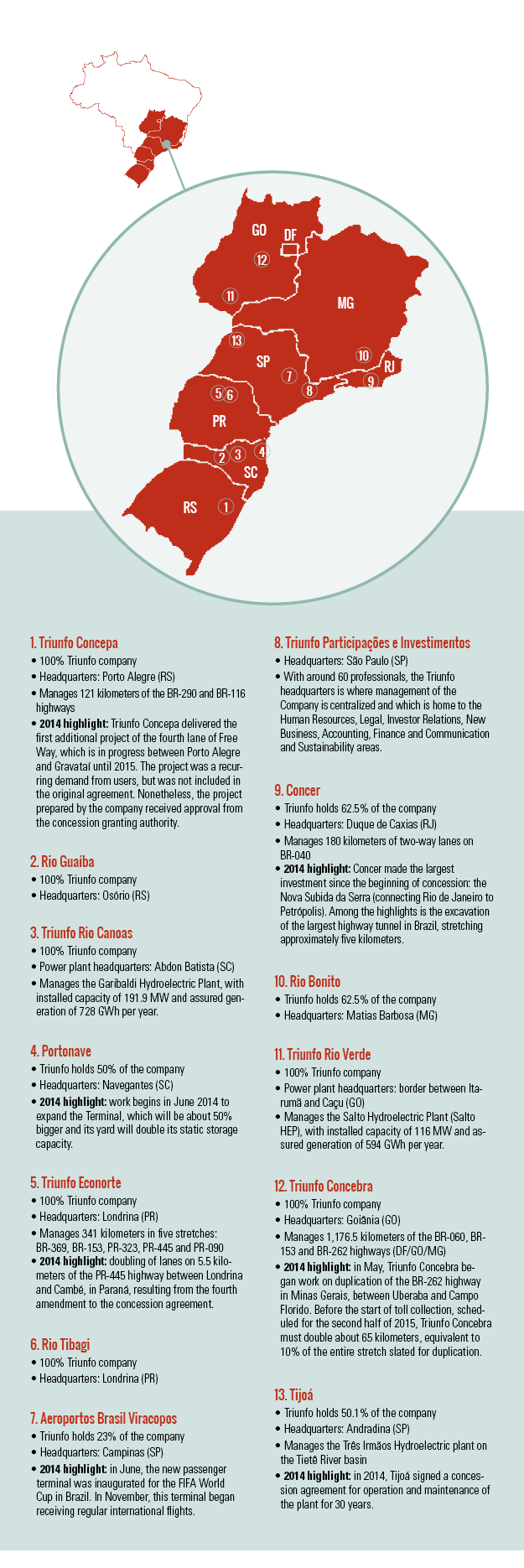
Highways
Triunfo Concebra
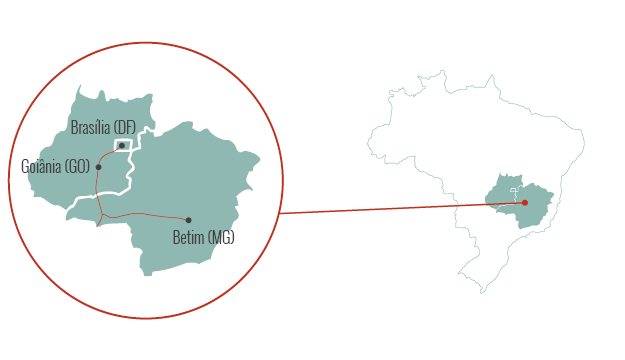
In 2013, Triunfo won the lot consisting of highways BR-060/153/262 – the largest highway concession in Brazil. The concession’s 1,176.5 kilometers pass through the Federal District and the states of Goiás and Minas Gerais, connecting Brasília (DF) to Betim (MG). Triunfo Concebra is responsible for investing in the recovery, maintenance and conservation of the highway throughout the stretch, in addition to offering medical and mechanical assistance to users.
BR-060 connects the Western end of the state of Mato Grosso do Sul to the country’s capital, constituting a regional axis between Goiânia, Anápolis and Brasília. BR-153 connects the states of Pará and Rio Grande do Sul, in addition to connecting Goiás to the Triângulo Mineiro region and the north of São Paulo state. BR-262 connects the countryside with the coast, cutting through the states of Mato Grosso, São Paulo, Minas Gerais and Espírito Santo.
Concebra began operations on September 5, 2014 and toll collection will start after the doubling of lanes on 10% of the stretch (64.8 kilometers), expected to be concluded in the second half of 2015. In 2014, the company completed the first stage of improvements to highway conditions, with the installation of signage, protection equipment and reflective material, among other actions.
Infrastructure
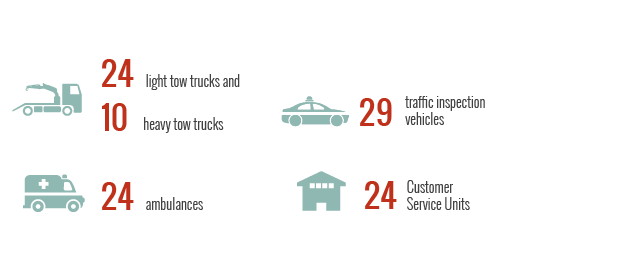
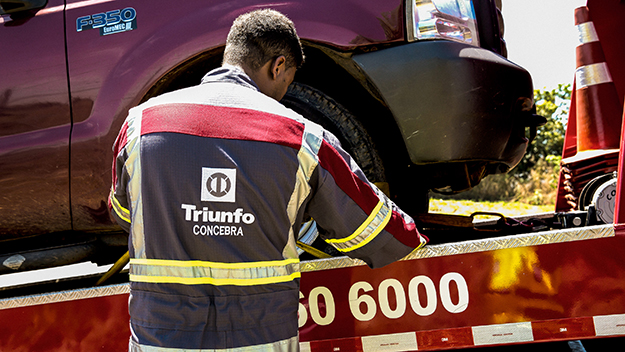
Triunfo Concepa
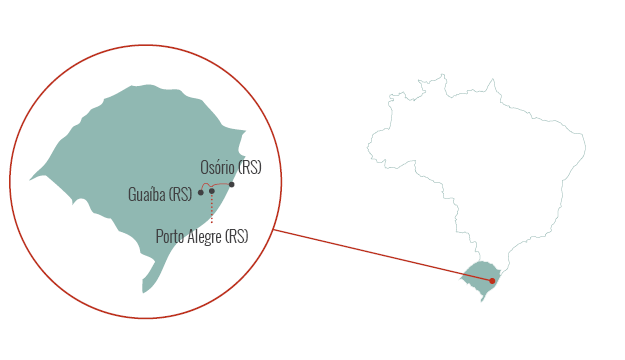
Triunfo Concepa manages 121 kilometers of the BR-290 and BR-116 highways in the state of Rio Grande do Sul. The stretch under concession includes Free Way, elected for the second consecutive year as the best federal highway in the country by Guia Quatro Rodas of the publishing house Abril. BR-290 is one of the main corridors connecting Brazil to Mercosur, particularly Uruguay and Argentina. Traffic on the stretch managed by Triunfo Concepa came to 40.2 million vehicle equivalents in 2014.
Infrastructure
|
In 2014, the Company delivered the first additional project of the fourth lane of Free Way, wich is in progress between Porto Alegre and Gravataí until 2015. This work was not included in the original agreement but the project executed by Triunfo Concepa received approval from the population and the concession granting authority. Triunfo Concepa’s concession agreement envisages the recovery, strengthening, monitoring, improvement, maintenance, conservation and operation of highways through toll collection. |
Concer
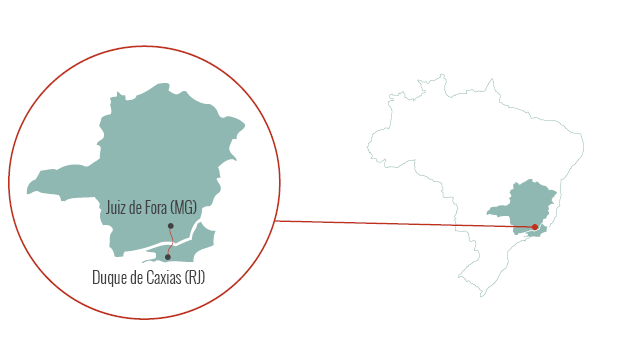
Concer was a pioneer in highway management in Brazil, participating in the highway concession program launched by the Brazilian Government in 1995. It manages a 180-kilometer stretch of the two-lane BR-040 highway, which connects Juiz de Fora in Minas Gerais to the city of Rio de Janeiro, passing through nine cities. It is the main highway corridor connecting the two states, which are the second and the third largest economies in Brazil. In 2014, 31.2 million vehicles circulated through the stretch managed by Concer.
The 2014/2015 edition of the Guia Rodoviário 4 Rodas elected BR-040 as one of the ten best federal highways in Brazil. The concession agreement, signed in 1995, is valid for 25 years and envisages the recovery, strengthening, monitoring, improvement, maintenance, conservation, operation and exploration of the highway through toll collection. Triunfo holds 62.5% interest in Concer and the remaining 37.5% is divided among Construcap-CCPS Engenharia e Comércio S.A., CMSA Participações S.A. and CCI Concessões Ltda.
The New Subida da Serra (NSS) uphill lane is the main project underway at Concer. The project is for construction of a lane of approximately 20 kilometers that will replace the current Rio-Petrópolis route, a stretch of BR-040 that has been in operation in 1928. The extra lane was necessary given the highway’s winding roads and absence of shoulders and which is unable to handle the growing traffic volume. In 2014, the new Duque de Caxias toll plaza and the new accesses to Xerém (Duque de Caxias district) were completed. The most complex lot of the Nova Subida da Serra is the excavation of the largest highway tunnel in Brazil, spanning
4.6 kilometers, through simultaneous work on four excavation fronts.
Triunfo Econorte
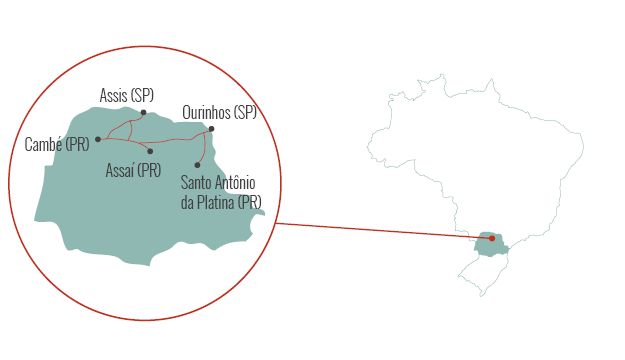
Established in 1997 under the Highway Concession Program coordinated by the Toll Roads Department of the State of Paraná (DER/PR), Triunfo Econorte manages a 341-kilometer network of highways, divided into five stretches: BR-369, BR-153, PR-323, PR-445 and PR-090. The stretch comprises 289.8 kilometers of one-way lanes and 50.9 kilometers of two-way lanes. A total of 15.6 million vehicle equivalents passed through these in 2014.
Triunfo Econorte’s highway network connects 15 cities in Northern Paraná. The region is considered strategic as it covers highways that serve as the main entry and exit routes for both Paraná and São Paulo. These highways are also used as alternative routes to transport agricultural produce from the states of Mato Grosso and Mato Grosso do Sul to the ports in Southern Brazil.
Triunfo Transbrasiliana
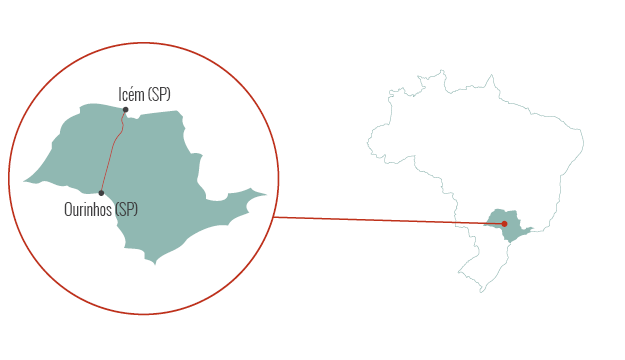
On September 16, 2014, Triunfo signed an agreement to 100% of the shares of BR Vias Holding TBR S.A., which holds 100% of the capital stock of Transbrasiliana Concessionária de Rodovia S.A. The stretch acquired will form an important highway corridor spanning 1.84 thousand kilometers, connecting the Triunfo Concebra and Triunfo Econorte concessions.
Service companies
Triunfo has three companies that provide services related to the concessionaires, such as highway maintenance, mechanical assistance and towing, medical and hospital care and rescue services. Rio Bonito Serviços de Apoio Rodoviário Ltda. (Triunfo’s interest: 62.5%) provides services in the states of Minas Gerais and Rio de Janeiro. Rio Guaíba Serviços Rodoviários Ltda. (100% owned by Triunfo) operates in Rio Grande do Sul. Rio Tibagi Serviços de Operações e de Apoio Rodoviários Ltda. (100% owned by Triunfo) operates in the state of Paraná.
Context
The toll road concession segment has gained momentum with the resumption of bids by both the federal and state governments. According to the Brazilian Association of Highway Concessionaires (ABCR), the extension of toll roads grew 67.8% in the past ten years, reaching 16,587 kilometers operated by 54 concessionaires.
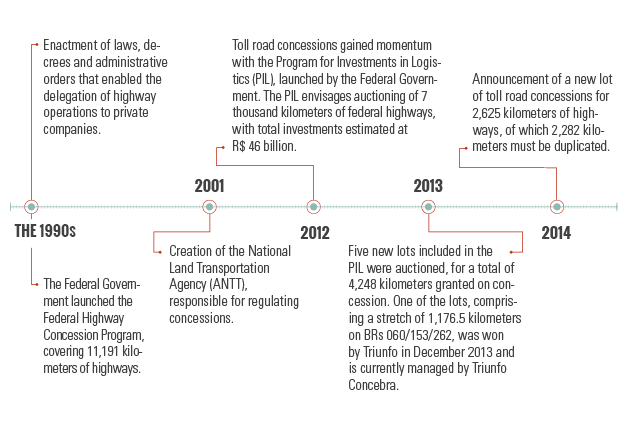
Energia
Triunfo Rio Canoas
Established in 2010, the company is responsible for building and operating the Garibaldi Hydroelectric Plant, located between the municipalities of Cerro Negro and Abdon Batista in Santa Catarina. With installed capacity of 191.9 MW, the plant generates assured energy of 727.9 GWh per year, and will be explored by Triunfo Rio Canoas until 2045, when the concession expires. Triunfo holds 100% interest in the company. EU1 EU10
Seventy percent of the energy generated by Garibaldi – starting from the scheduled date of its operational start–up on January 1, 2015 – has already been sold. Since construction was completed ahead of schedule, Aneel authorized the plant’s commercial start-up in September 2013, 13 months ahead of schedule. Consequently, Rio Canoas could sell 100% of the electricity generated until the initially scheduled date.
Triunfo Rio Verde
Triunfo Rio Verde owns the concession for the Salto Hydroelectric Power Plant (Salto HEP), located between the municipalities of Itarumã and Caçu in Goiás. In operational since 2010, the plant has installed capacity of 116 MW and generates assured energy of 593.9 GWh per year, all of which has already been sold up to 2026. Total investment in the construction and operational start-up of the plant was around R$ 540 million. EU1 EU10
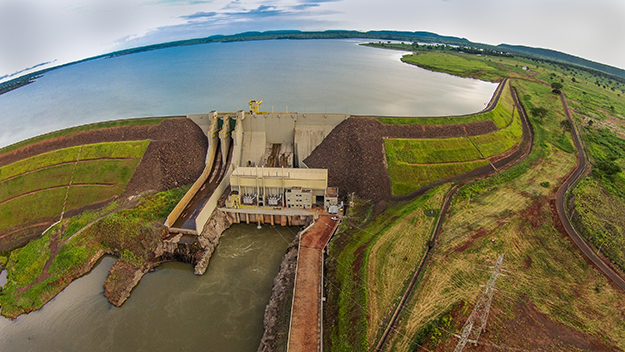
Tijoá
Created in August 2014 in partnership with Furnas - Centrais Elétricas S.A., Tijoá is responsible for the maintenance and operation of the Três Irmãos Hydroelectric Plant, located in the Tietê River basin in the city of Andradina (SP). The concession agreement is for 30 years from October 2014.
The Plant, with installed capacity of 807.5 MW, was the first to be auctioned under Law 12,783/13. Among others, the law establishes that physical guarantee quotas of electricity and installed capacity be fixed for electricity distributors connected to the National Interconnected System (SIN). The physical guarantee of the Três Irmãos plant is 217.5 average MW. EU1
EU10
- +TRIUNFO NEGÓCIOS DE ENERGIA
- Triunfo Negócios de Energia is an electricity trading company that sells energy generated from both conventional and alternative sources. It also provides specialized services to Brazil’s electricity sector. For free consumers, it provides regulatory advisory, contract analysis and energy contracting services, among other services. In the generation segment, it provides advisory services and serves as a representative at regulatory bodies such as the Brazilian Electricity Regulatory Agency (Aneel).
Context
In 2014, electricity installed generation capacity in Brazil reached 131.1 thousand megawatts (MW), according to the Electricity Commercialization Chamber (CCEE). The Brazilian power generation market is regulated and integrated. Projects may be executed and the use and sale of energy may be conducted by the Federal Government or third parties through concessions, permits or authorizations. In recent years, the government has adopted measures to encourage private and foreign investment, stiffening competition and reducing the share of concessionaires controlled by government authorities. According to the National Electrical System Operator (ONS), in 2014 energy consumption in Brazil increased by 3.7% over the previous year.
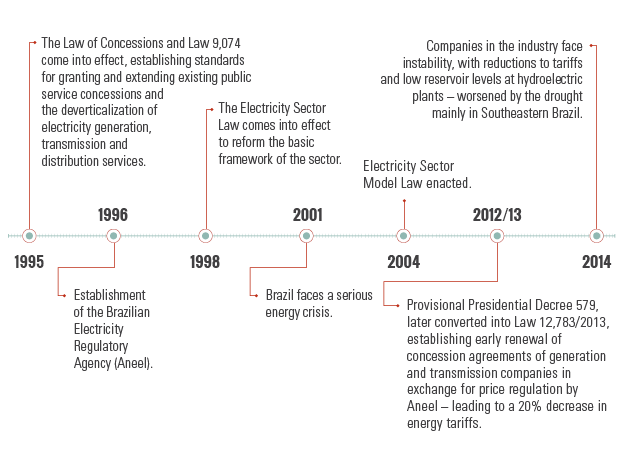
Ports
Portonave
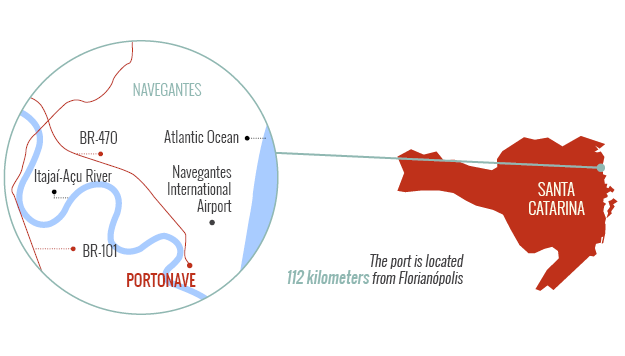
Headquartered in Navegantes in the Vale do Itajaí region of Santa Catarina, Portonave S/A - Terminais Portuários de Navegantes has, for seven years, been operating one of Brazil’s most modern port terminals, located on the left bank of the Itajaí-Açu River. It is the second largest company in Southern Brazil in the transport and logistics sector in gross revenue, according to a ranking released in 2014 by Amanhã magazine in partnership with PwC - PricewaterhouseCoopers. The company, which had around 1 thousand employees at the end of 2014, was the highest ranked port terminal on the list.
Portonave owns Teconnave, a company that provides backyard and warehousing services, and Iceport - Terminal Frigorífico de Navegantes S/A, which has storage capacity for 16 thousand pallet positions and also provides frozen cargo handling and consolidation services.
Infrastructure
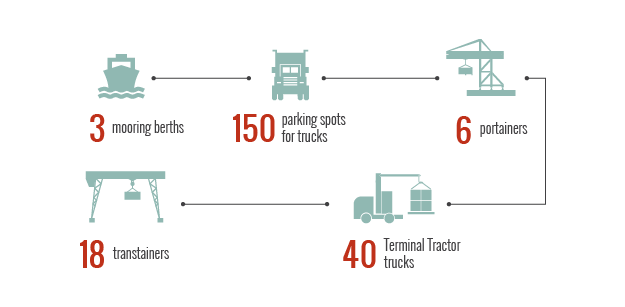
Portonave accounts for 44.5% of container cargo handled in Santa Catarina, a state known for its diversified economic profile. The port terminal was designed to ship the production from Southern, Southeastern and Midwestern Brazil, and from other countries in South America. The company’s share capital is divided into two equal parts, held by Triunfo and Bakmoon Investment Inc.
Ownership structure
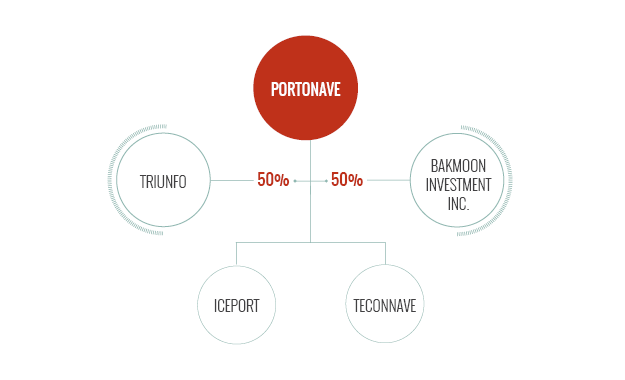
The initial capital injection of R$ 450 million (2007 values) to create Portonave has been followed up with fresh investments over the years. In 2014, work began on expansion of the Navegantes Port Terminal, which is slated for completion in 2015. With this expansion, the company will double the yard’s static capacity from 15 thousand to 30 thousand TEUs
(twenty-foot equivalent units).
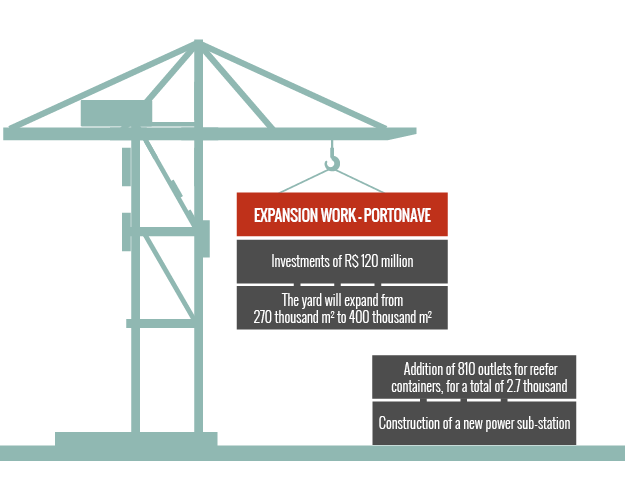
Portonaus
Designed to operate a port terminal focused on modern logistics solutions to support industry and trade in Northern Brazil, Portonaus, a 100% Triunfo company, acquired ownership, in 2012, of the area and the rights to operate the terminal located on the left bank of the Negro River in Manaus (AM).
Context
Accounting for more than 90% of the country’s exports, the Brazilian port sector consists of
37 organized ports, between sea and river ports, and another 128 private-use terminals (TUPs), according to the Ports Department of the Office of the President of Brazil (SEP/PR). In all, this system handled 929 million tons in 2014, up 4% from 2013, according to data from Brazil’s National Waterway Transportation Agency (Antaq). Of this total, 349 million tons were handled by organized ports, versus 620 million by TUPs.
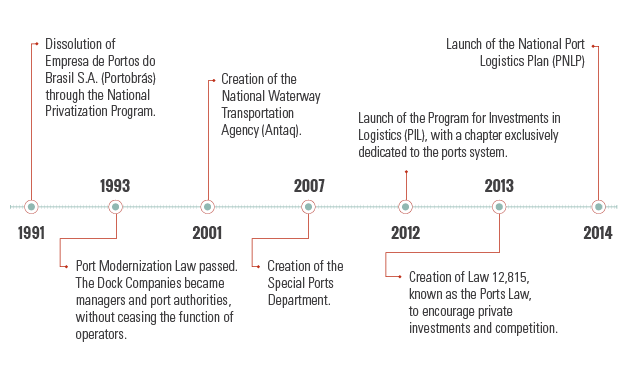
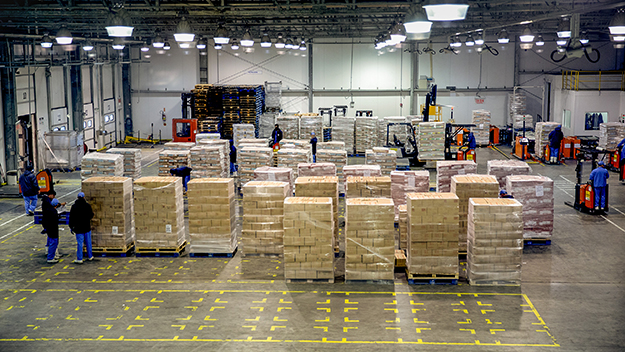
Airports
Aeroportos Brasil Viracopos
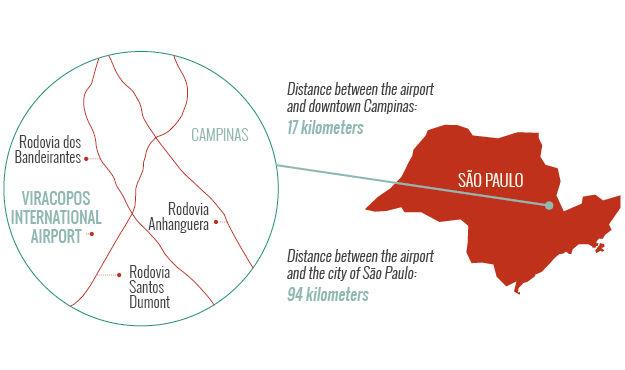
Operating since November 2012, Aeroportos Brasil Viracopos S.A., a concessionaire in which Triunfo is a shareholder, was the pioneer in airport terminal concessions in Brazil. It is responsible for managing the Viracopos International Airport in Campinas (SP). Triunfo shares interest in the concessionaire with UTC Participações S.A., Egis Airport Operation and Infraero.
Ownership structure
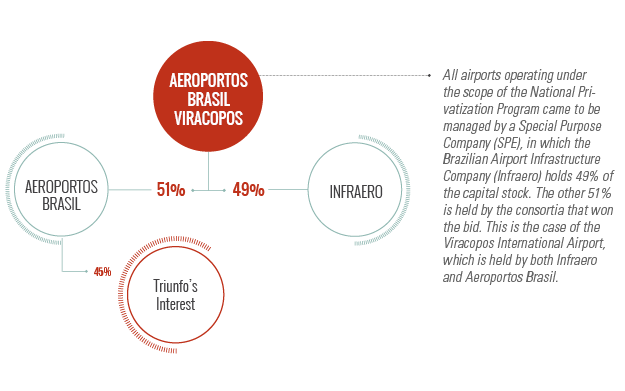
The Viracopos International Airport was considered the most important infrastructure project in Brazil, according to a study conducted by KPMG based on a request from the Exame magazine for its Infrastructure Yearbook. In its new phase, the airport aims to consolidate its position as an important route for international flights, to encourage regional aviation and to expand cargo transport – retaining its leadership among all Brazilian airports in this segment.
The New Terminal
In November, the new passenger terminal started receiving regular international flights. The airport received a record 9 million passengers in 2014, 5.9% more than in the previous year, driven by the FIFA World Cup in Brazil held in June and July.
Before the new terminal went operational, the airport operated three weekly international flights. At the end of the year, it was offering 38 flights on seven different routes.
Viracopos and the FIFA World Cup
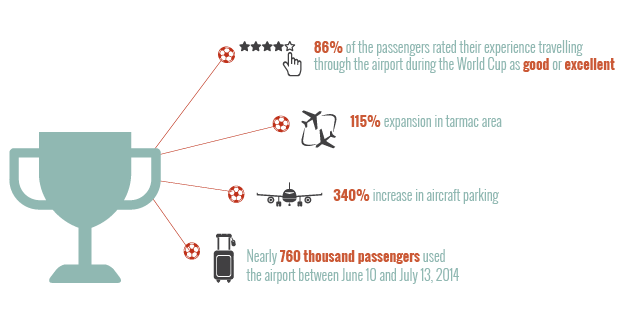
A new airport
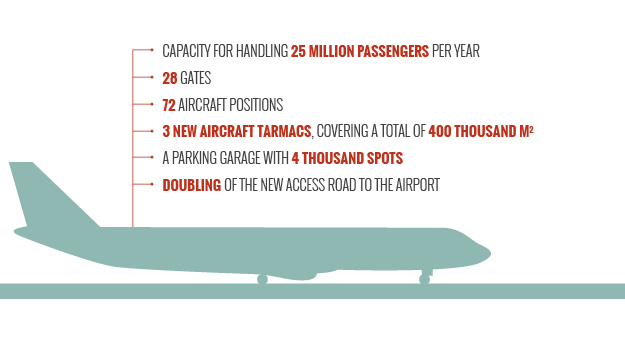
Context
In 2014, according to Brazil’s National Civil Aviation Agency (Anac), nearly 103 million passengers traveled through Brazilian airports, including those with paid and free tickets, on domestic and international flights operated by Brazilian and foreign airlines. According to Anac, domestic flights carried a total of 95.9 million passengers in 2014 – a 6.6% increase over the previous year. Passenger traffic on international flights grew 5.7%, totaling 6.4 million passengers.
